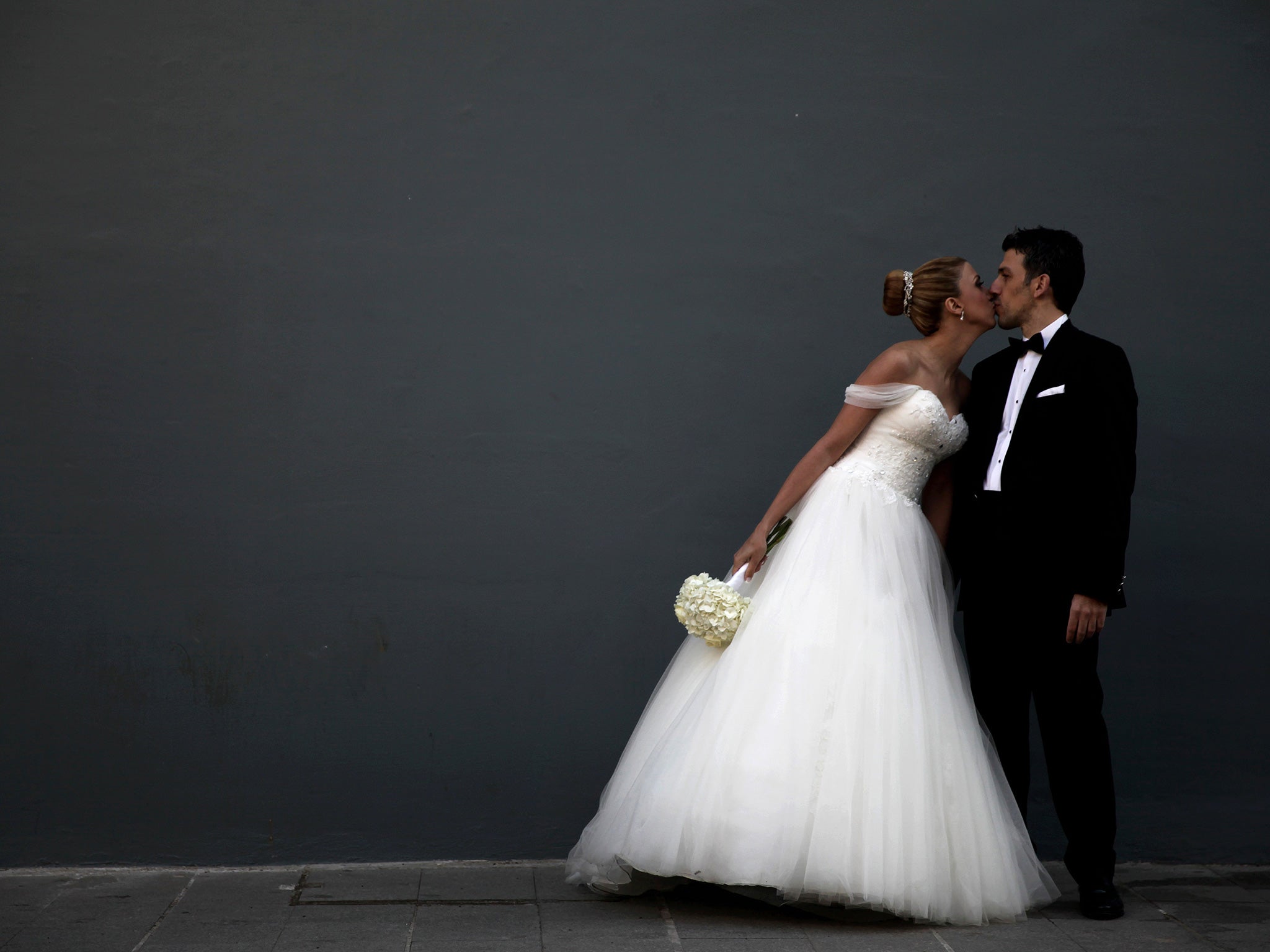This is the perfect age to get married if you don't want to get divorced
University of Utah researcher Nicholas Wolfinger says he has found the optimal age range for a lasting marriage

Your support helps us to tell the story
From reproductive rights to climate change to Big Tech, The Independent is on the ground when the story is developing. Whether it's investigating the financials of Elon Musk's pro-Trump PAC or producing our latest documentary, 'The A Word', which shines a light on the American women fighting for reproductive rights, we know how important it is to parse out the facts from the messaging.
At such a critical moment in US history, we need reporters on the ground. Your donation allows us to keep sending journalists to speak to both sides of the story.
The Independent is trusted by Americans across the entire political spectrum. And unlike many other quality news outlets, we choose not to lock Americans out of our reporting and analysis with paywalls. We believe quality journalism should be available to everyone, paid for by those who can afford it.
Your support makes all the difference.In July 2015, University of Utah researcher Nicholas Wolfinger announced that he had found the optimal age range for a lasting marriage, after looking at data published by the National Survey of Family Growth (NSFG) from 2006-2010.
Wolfinger, an adjunct professor of sociology at the university, claimed that the likelihood of divorce was lowest when a couple married between the ages of 28 and 32. “The odds of divorce decline as you age from your teenage years through your late twenties and early thirties,” Wolfinger wrote. ”Thereafter, the chances of divorce go up again as you move into your late thirties and early forties." While Wolfinger’s research generated considerable interest in the media, it was also met with a healthy dose of scepticism.
So is there really such a thing as the “best” age to get married? One of the UK’s best-known marital therapists, Andrew G Marshall, feels that we may be trying too hard to show we’re in the “perfect relationship”.
“It fits in with our idea that there’s such a thing as a full partner, who understands us 100 per cent, and because we’re on exactly the same wavelength all our problems are going to fall away and we’re going to have a perfect relationship,” he tells The Independent.

“I think it’s wishful thinking, that if we do it on the right day, in exactly the right way, we will set off in the right way and have the right marriage. And we’re terrified of making mistakes, so we guard against that by these sort of superstitions.”
He suggests that these superstitions take place, in part, in the wedding day, where some couples will spend hundreds of thousands of pounds on everything from the “perfect” dress to the “perfect” location.
“They think: ‘if I’ve said it in front of all my family and friends, and on Instagram, I’ve got to get the marriage right,’” Marshall says.
How does he feel about this notion of there being an ideal age to get married?
“I think the best age to get married is when you’re both ready and want to do it,” he says.
“Marriage is a wonderful institution. Because living together is a private arrangement, whereas getting married is a public one: it brings your partner into your family, and provides them with more loving support.
“It also makes you think twice before you separate, and that’s generally a good thing. We choose people for a reason, and that reason is normally growth. And growth involves conflict, which we're often terrified of, but actually it’s really good for us.”
He suggests that couples often get caught up in the cliché of “I love you, but I’m not in love with you”, because they supress their differences.
“They think conflict is terrible, so they undermine their relationship by tip- toeing around it.”
Marshall also believes social media is a “complete and utter disaster” for modern relationships.
10 years ago, he says, no one he spoke with complained about how their partner was “always on their phone” or “always on Facebook”.
Now, he hears it all the time.
“It also makes infidelity much easier,” he says, “and when you’re trying to get over them it’s much harder, because the other party can pop into your house with a “bing” at any time of day or night.”
Andrew G Marshall’s book “I Love You, I’m Just Not In Love With You”, is out now.
Join our commenting forum
Join thought-provoking conversations, follow other Independent readers and see their replies
Comments